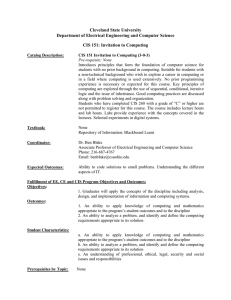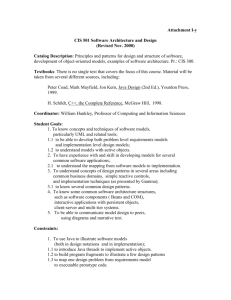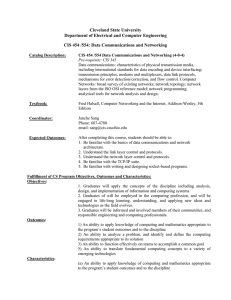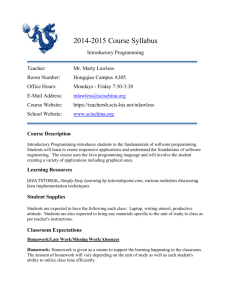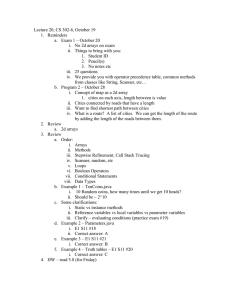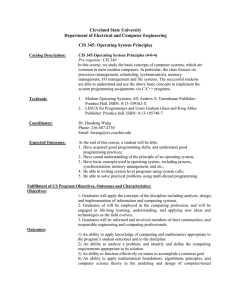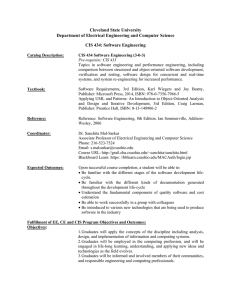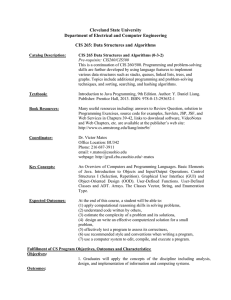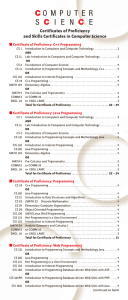Cleveland State University Department of Electrical and Computer Engineering
advertisement
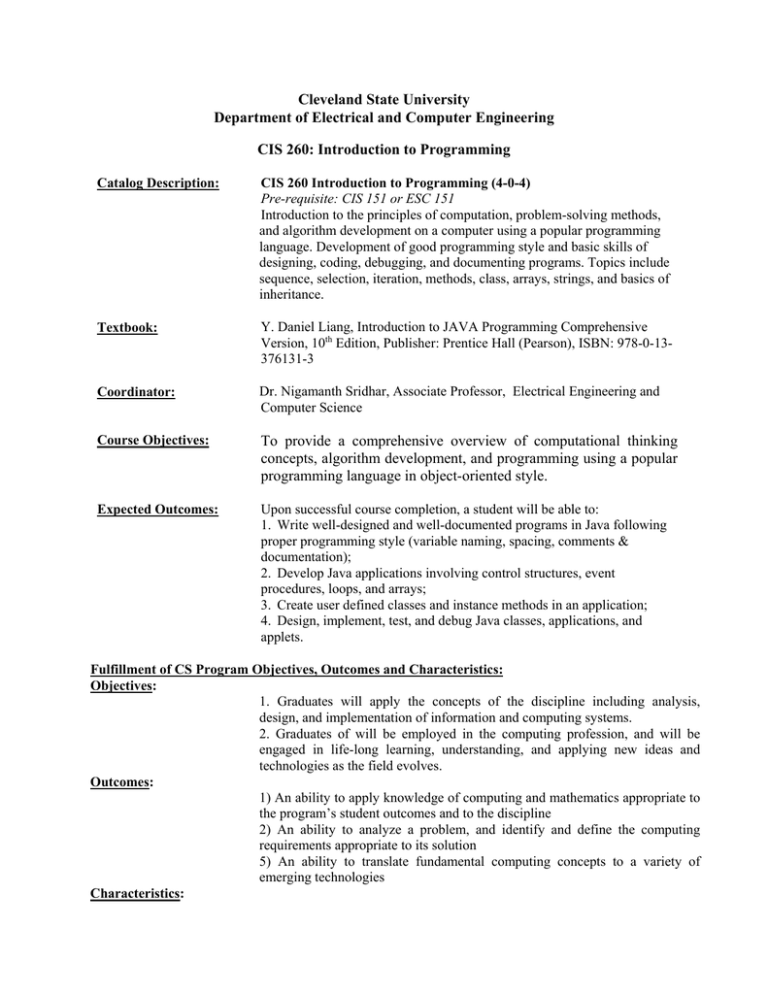
Cleveland State University Department of Electrical and Computer Engineering CIS 260: Introduction to Programming Catalog Description: CIS 260 Introduction to Programming (4-0-4) Pre-requisite: CIS 151 or ESC 151 Introduction to the principles of computation, problem-solving methods, and algorithm development on a computer using a popular programming language. Development of good programming style and basic skills of designing, coding, debugging, and documenting programs. Topics include sequence, selection, iteration, methods, class, arrays, strings, and basics of inheritance. Textbook: Y. Daniel Liang, Introduction to JAVA Programming Comprehensive Version, 10th Edition, Publisher: Prentice Hall (Pearson), ISBN: 978-0-13376131-3 Coordinator: Dr. Nigamanth Sridhar, Associate Professor, Electrical Engineering and Computer Science Course Objectives: To provide a comprehensive overview of computational thinking concepts, algorithm development, and programming using a popular programming language in object-oriented style. Expected Outcomes: Upon successful course completion, a student will be able to: 1. Write well-designed and well-documented programs in Java following proper programming style (variable naming, spacing, comments & documentation); 2. Develop Java applications involving control structures, event procedures, loops, and arrays; 3. Create user defined classes and instance methods in an application; 4. Design, implement, test, and debug Java classes, applications, and applets. Fulfillment of CS Program Objectives, Outcomes and Characteristics: Objectives: 1. Graduates will apply the concepts of the discipline including analysis, design, and implementation of information and computing systems. 2. Graduates of will be employed in the computing profession, and will be engaged in life-long learning, understanding, and applying new ideas and technologies as the field evolves. Outcomes: 1) An ability to apply knowledge of computing and mathematics appropriate to the program’s student outcomes and to the discipline 2) An ability to analyze a problem, and identify and define the computing requirements appropriate to its solution 5) An ability to translate fundamental computing concepts to a variety of emerging technologies Characteristics: (a) An ability to apply knowledge of computing and mathematics appropriate to the program’s student outcomes and to the discipline (b) An ability to analyze a problem, and identify and define the computing requirements appropriate to its solution (i) An ability to use current techniques, skills, and tools necessary for computing practice. Prerequisites by Topic: C Programming Topics: 1. Introduction to Computers; Elementary Programming 6 2. Data types 4 3. Control Structures 8 4. Structured data types (arrays, matrices) 6 5. Looping and repetition 8 6. Objects and Classes 8 7. Client-focused objects 6 8. Methods and abstraction 6 9. Exam review 4 10. Exams 4 Total Computer Usage: Programming open lab and closed lab assignments weekly. 60

